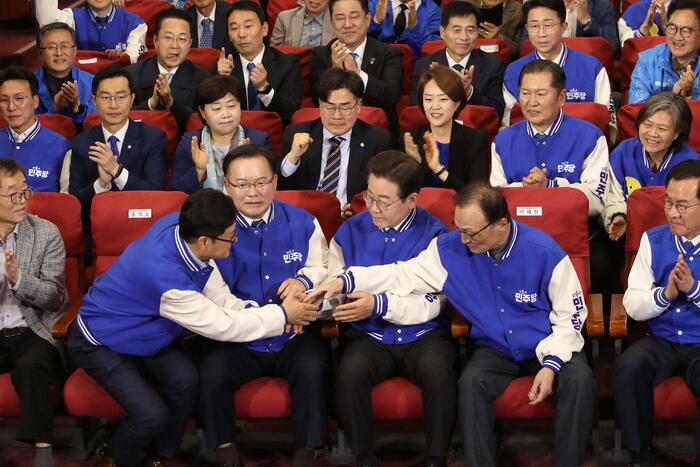Lee Kun-Hee, the president of Samsung and the richest man in South Korea, died this Sunday in Seoul, according to the company announced in a statement.
Lee, 78, patriarch and soul of the multinational giant, was hospitalized since he suffered a heart attack in 2014. His death opens what may be for his children a thorny succession process at the head of the immense family conglomerate, the most powerful in the world. country.
"President Lee was a true visionary who transformed Samsung from a local company into a leading global innovator and industrial powerhouse," the statement said.
The deceased businessman leaves behind three children.
The only male is Lee Jae-Yong (also known in the West as Jay Y Lee), vice president of Samsung Electronics, the jewel in the group's crown.
The two daughters, Lee Boo-jin and Lee Seo-hyun, are respectively in charge of the conglomerate's hotel business –Hotel Shilla Co.– and the Samsung Assistance Foundation.
Lee Jae-Yong has been involved in a major legal scandal related to the merger of two Samsung subsidiaries that allowed him to acquire more power at the head of Samsung Electronics, the main company of the conglomerate.
The expected heir to his father's job was sentenced to jail in a corruption case that sparked the downfall of then-South Korean President Park Geun-hye, though a court later lowered and suspended his five-year prison sentence after acquit you of some of the charges.
The case is still ongoing, and the businessman also faces another process for manipulation of the share price and accounting fraud.
The death of the group's patriarch, whose personal fortune
Forbes
magazine
estimates at $ 20.9 billion (about 18 billion euros), opens the door to a possible restructuring of the conglomerate.
Lee Kun-hee owned 4.18% of the shares of Samsung Electronics and 20.7% of those of the insurer Samsung Life, the largest shareholder in Samsung Electronics.
What now happens in succession will be of vital importance to South Korea, the world's 12th largest economy.
Samsung's global business volume is equivalent to 20% of the country's GDP.
This importance of the business giant is a credit to Lee Kun-hee's work.
After inheriting in 1987 the group that his father, Lee Byung-chul, had started as a food business, he transformed a multinational specialized in cheap products into what, at the time of his heart attack, was the largest company in the world by volume of income in the information technology sector.
In 1993 he ordered a deep restructuring of Samsung Electronics - "change everything but your spouses and children," he told his executives - to focus less on sales volume and more on product quality.
"His 1993 statement on 'New Management' was the driver that motivated the company's vision to manufacture the best technology that would contribute to the advancement of global society," said the statement from Samsung this Sunday.
Today, the conglomerate's products encompass every possible aspect of a South Korean's life, from household appliances - and, of course, their electronics - to their life insurance.
All this organized in a complicated structure formed by more than 80 companies, in which some companies are majority shareholders in the others.
This economic father of the South Korean homeland was both admired and controversial in his country.
Like his son, he also appeared in court, which twice found him guilty.
And in both he was pardoned, in a frequent pattern in a country where the
chaebol
- the gigantic family conglomerates of which Samsung is its greatest representative - equate to true power.
In 1996 it was discovered that he had paid bribes to two South Korean presidents, Chu Doo Hwan and Roh Tae Woo.
But in 1997, the then head of state, Kim Young Sam, granted him a presidential pardon.
Twelve years later, in 2008, the scene would repeat itself.
On that occasion the charge was tax evasion.
He was fined 100 million euros and sentenced to three years in prison, and Lee even stepped down from the group's presidency.
But again the pardon came from the Blue House, the headquarters of the Head of State.
And in 2010 Lee returned to his position at the head of Samsung, as if nothing had happened.

/cloudfront-eu-central-1.images.arcpublishing.com/prisa/IAZ6G7VSTNE5NDPLHYO4DEOTZE.jpg)













